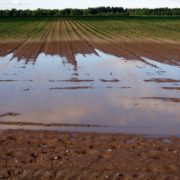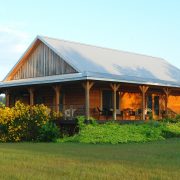Growing Green: An Investor’s Guide To Investing In Land Real Estate
We believe investing in land real estate starts with the why. For a broker to serve a client well, they need to understand why a client wants to start investing in land real estate. Often, the why has little to do with financial issues. Why do they want to invest? What is important to an investor? Are there are financial, emotional, and recreational benefits to investing in land for them?
Once we understand the why, then it’s a matter of figuring out the financial entry parameters for the investment – total dollars to be spent, desired geography, the target rate of return, etc. After we learn the big picture parameters, we can help shape expectations. Setting expectations at this stage is critical. In all areas of land investing, so much of the long-term financial success hinges on how well we do in helping a client achieve realistic expectations to purchase an asset. Buy low, sell high isn’t a complicated idea, but it’s very hard to execute (especially on the buy side).
It is important for the broker to discuss this and help the client consider the liquidity of the land investment. This discussion will help the client keep in view the ‘long-game’ with the prospective sale of the asset, which may be years down the line. As brokers and trusted advisors to our clients, having that exit strategy/discussion is important. Take notes, and make sure the client knows and remembers how and why they chose to do what they did.
Investing in land real estate is one of the oldest investments in the world. The significant wealth of the world originated with land ownership. Land is also traditionally one of the most conservative investments, with land held by families for generations. Institutional investors have named land as a new asset class.
Changes in technology, world demographics, and government policies have caused land income and land prices to increase. The financial performance of land as an investment has offered financial stability, steady earnings, and diversification from other investments. Land earns well compared to other assets.
Our team of farmland professionals helps individuals, families, and organizations buy, sell, and own income-producing land – primarily for those who do not provide their own labor or machinery. We professionally manage 2,400 farms with 550,000 acres for our clients.
Land is a stable investment. However, there is risk to managing it. An investor manages risk through the selection lease or operating arrangement, farm location, soils, crops, water quality, and quantity. Each of these factors is predicated on geography. Buying land in the corn-belt has a different risk profile than buying land in the West, Delta, or Southeast.
Our team of farmland professionals helps individuals, families, and organizations buy, sell, and own income-producing land – primarily for those who do not provide their own labor or machinery. We professionally manage 2,400 farms with 550,000 acres for our clients.
Land has unique characteristics, compared to other real estate and securities:
- Land has the potential for perpetual income. If owners are good stewards of the land and maintain and improve the land, the land will produce income
- Land produces tangible production – something Whether the land grows commodity crops, veggies, livestock, or timber, it is real production.
- Quality land builds and maintains value through a combination of soil, location, water, climate, logistics, and community. Selecting land for investment allows the investor to hand pick the location and characteristics that help maintain value and position for future growth in income and
Government policies shape and influence the land use, ownership, and potential future uses. Land ownership offers stability with changing government policies. Many of our governments have difficulty managing their economies and lack the fiscal discipline to balance their budgets. There are few investments which offer financial performance based on producing food and tangible commodities that adjust for inflation and economic changes.
The technology revolution is impacting land efficiency, water management, genetics, cultural practices, and food safety – all which impact land values. Land production and income is a result of improving yields, quality of production, production efficiencies, and demand for food, fuel, and fiber for a growing world population. Examples include average corn yields increasing by 400% from the 1930s to today, and productivity improvements with labor content today for an acre of corn or soybean production of less than one hour per acre per year. One American farmer now feeds an average of 116 people.
Land values are directly correlated with the benefits received from the land. As productivity, yields, and prices have increased, so have land values.
Finally, investing in land real estate can provide additional benefits beyond pure financial rewards. In addition to producing something for the world, you have an environmental benefit and the recreational components of hiking, hunting, fishing, and pride of ownership.
How do you participate in land ownership? You do not need to live on the land and operate and manage it yourself. There is professional assistance and an active land rental market. Professional management of your land investment is available. There are thousands of little decisions to make while managing and improving the value of your land, all of which can make a larger difference among land investment results than people would imagine. The relationship between an owner and their manager/operator is special. They share a connection to the land and a relationship to making the world a better place.
This article was originally published in the Summer 2019 Terra Firma magazine.
 About the author: Randy Hertz, ALC, is CEO, broker, and farmland professional with Hertz Farm Management and Hertz Real Estate Services, specializing in land brokerage and management. He is a senior instructor for the REALTORS® Land Institute’s LANDU Education Program who has a bachelor degree from Iowa State and an MBA from Harvard Business School.
About the author: Randy Hertz, ALC, is CEO, broker, and farmland professional with Hertz Farm Management and Hertz Real Estate Services, specializing in land brokerage and management. He is a senior instructor for the REALTORS® Land Institute’s LANDU Education Program who has a bachelor degree from Iowa State and an MBA from Harvard Business School.














Owning a piece of land gives you leverage to build a home, shop or use it as a flipping asset. Buying land can be your best investment.
Buying an apartment is one of the best investments that you ever made in your life.
House is a place where you chill, relax and spend almost half of your life. So, buying a well-developed and well-built dream apartment must be a top priority. The best place to live in Pakistan is Lahore